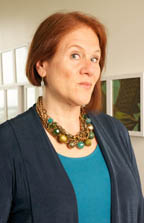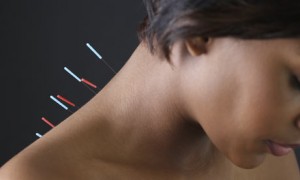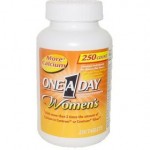Taking a Holistic Approach to Treating Menopause | FH Interview Series
FoundHealth is pleased to announce its new coverage of a prominent health challenge: Menopause. Our meticulously researched treatments for Menopause range the disciplines of medicine, herbs, diet, mind, body and spirit (See the Menopause Treatment page). To explore the power of using a holistic approach to treat Menopause, FoundHealth’s Health Writer Olivia M. Cerf sat down with Nina Price, a board-certified healthcare professional.
Nina Price is a licensed acupuncturist, master herbalist, author, speaker, teacher and radio personality who helps women achieve midlife success. She is on a mission to help high-powered women heal themselves and enjoy their “Midlife Without Crisis.” www.midlifewithoutcrisis.com
This blog highlights essential segments of the interview:
Cerf: Have you seen Chinese medicine improve women’s quality of life? How?
Nina: Every Day. Traditional Chinese Medicine (TCM) is so powerful. It is great for women’s health issues at any age, including PMS, fertility, perimenopause, menopause and beyond. Traditional Chinese Medicine uses a very specific taxonomy when it comes to diagnosis. When dealing with women’s health issues TCM practitioners gather detailed information about things like: the length of a woman’s menstrual cycle, duration of periods, flow, texture and appearance of blood, so that they can develop a treatment based on that woman’s specific needs.
Here are a couple of simple examples where Traditional Chinese Medicine significantly improved women’s quality of life:
I had a client say to me, “Until I tried Chinese medicine I didn’t realize that it was possible to have a month where I wasn’t out of commission for two days due to menstrual cramps.” She had great success treating her PMS with Chinese herbal medicine, acupuncture and massage, and reclaimed two days each month.
Another client had suffered with endometriosis for her whole life. She had a hysterectomy, and later had a piece of her colon removed, but she still suffered with searing pain. We tried a TCM herbal formula and her pain is finally gone.
Learn about treating Menopause with Acupuncture.
Cerf: Do you think that herbs, acupuncture, or a combination of the two are most effective when it comes to treating menopause symptoms? What about other nutritional supplements?
Nina: TCM is not just acupuncture, it’s acupuncture and herbs. It can also include Qi Gong or dietary prescriptions. In most cases I do not recommend just acupuncture. I also do not typically recommend a single herb; (instead), I prefer to recommend herbal formulas so you can get the benefit of herbal synergies. Think of an herbal formula as “a team of herbs with complementary attributes”. Wouldn’t you rather have a team of herbs solving your problem rather than just one? Herbal formulas can show up as pills, teas, soups, topical creams, plasters, food… even syrups and wines.
Typically in our culture we tend to take pills because that’s the most common delivery medium in Western medicine. I run into a lot of people who hate to take pills, or if they do, they want to only take one. So for them an effective herbal remedy might be a tea or a food-based remedy.
At midlife most women need to be taking supplements. I recommend a good multi-vitamin. There are lots of good ones readily available. Personally I like the ones that address specific problems you have in addition to providing basic nutrition. You may need probiotic support, immune support, breast support or other antioxidants. Some women find it convenient to drink all their supplements in a protein shake first thing in the morning. Find what works for you and do it consistently.
Read more on Nina’s Nutritional Guidelines for Menopause: Diet & Menopause
Read about Omega’3s benefits on Menopause: Essential Fatty Acids
Read about Herbal treatments for Menopause: Herbs
Cerf: Do you have a position on hormone replacement therapy? Do you ever recommend it for your clients?
Nina: I do not recommend hormone replacement therapy. Most women don’t need it. Women have gone through menopause for centuries without taking hormones. Though hormones can offer symptom relief, I’m not convinced that they address the root causes of the body’s imbalances. There are herbal formulas that are very effective in resolving the symptoms because they specifically address what is out of balance in the woman’s body. Many women today are wary of pharmaceuticals and the good news is that there are good alternatives to hormone replacement therapy.
Read about treating Menopause with Hormone Replacement.
Is there anything from Traditional Chinese Medicine philosophy or from your personal experience as a practitioner that you think could prevent symptoms of menopause, or prevent them from being severe?
Nina: Keeping your body in balance is really important. As your hormones shift there is an imbalance, and you need to play a more active role in maintaining the balance.
Talk to a Traditional Chinese Medicine practitioner about what you can be doing differently to assist you as your body starts to change. I feel strongly about teaching my clients how to stay in the “driver’s seat” so that they don’t feel so out of control.
Midlife is all about coming to terms with what’s going on in your body. Until you’re about 40, it’s easy to ignore your body unless you’re sick. Most of us don’t tend to pay attention. I define midlife as the time when you continue to do what you’ve always done but you get different results. You’re eating, exercising, sleeping, having sex the same way…but your old ways of doing things may not work for you anymore.
See the full interview with Nina.
See FoundHealth’s Menopause Page.
Dealt with Menopause? Leave a comment sharing your experiences with treatments that worked or didn’t work for you!
Join Our Community
Archives
- January 2023
- December 2022
- September 2022
- August 2022
- June 2022
- May 2022
- April 2022
- March 2022
- February 2022
- January 2022
- December 2021
- November 2021
- October 2021
- September 2021
- August 2021
- July 2021
- June 2021
- May 2021
- March 2021
- September 2020
- August 2020
- July 2020
- June 2020
- May 2020
- April 2020
- March 2020
- February 2020
Subscribe

Sign up to receive FREE toolkit
From Dr. Hyman, #1 NY Times & Amazon Author
We never spam or sell your e-mail






Follow Our Every Move